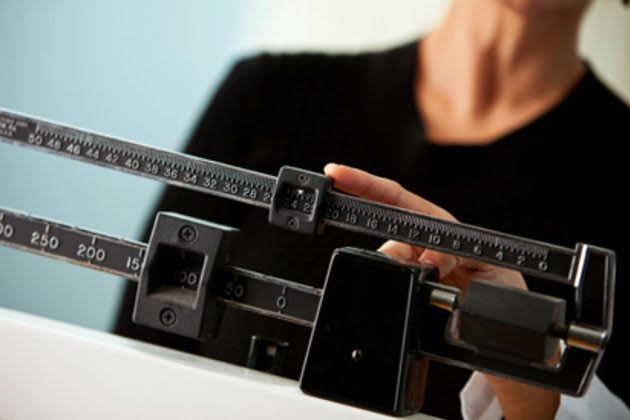When it comes to losing weight, most of us tend to think of dieting and exercising. The weight loss equation is simple: burn more calories than you ingest. Sounds easy enough. But if it’s so easy, then why can’t most of us accomplish it? Why are the rates of overweight and obesity so high?
Because when it comes to executing our diet and exercise plans, we fall short. We have poor habits that are hard to undo. But if we can’t change our basic behaviors, we’ll continue to start (and end) diets that last a few days, at best.
 Most people who are overweight and out of shape have two things in common. One, they don’t limit what they eat (often not for lack of trying), and two; they usually lead a sedentary lifestyle. These habits have been in place for many, many years, essentially entrenched within their–or our–beings. Rav Yisrael Salanter once said that it is easier to learn the entire Talmud than to change one character trait. It is indeed difficult to inculcate something into your life that may not have been a part of it for 30, 40 or even 50 years. But these changes enhance your quality of life, and in some cases, may even save your life, so they are well worth the effort.
Most people who are overweight and out of shape have two things in common. One, they don’t limit what they eat (often not for lack of trying), and two; they usually lead a sedentary lifestyle. These habits have been in place for many, many years, essentially entrenched within their–or our–beings. Rav Yisrael Salanter once said that it is easier to learn the entire Talmud than to change one character trait. It is indeed difficult to inculcate something into your life that may not have been a part of it for 30, 40 or even 50 years. But these changes enhance your quality of life, and in some cases, may even save your life, so they are well worth the effort.
Take heart: change is possible. A study done in 2005 in Sweden by Hallstrom Stahre confirmed that obese subjects lost weight not only during a 10-week cognitive therapy program, but that most continued to lose weight during an 18-month follow-up as well. A weight-loss program that recognizes the need to change behaviors on a deeper level is one that is most likely to succeed.
In a recent interview with the mental health editor of Medscape, Judith S. Beck, Ph. D.¹, gave some solid tools for how you should approach weight loss when it comes to changing behaviors. Dr. Beck states:
Dieters need a great deal of education about dieting, food, eating, and maintenance. They have to choose a highly nutritious diet program and learn to plan and self-monitor their intake. They need help in solving problems that would otherwise derail them. They need to find someone to keep them accountable and to support them. Behavioral experiments are important to decrease their fear of hunger and cravings and increase their tolerance for these uncomfortable states. Finally, they need to learn how to identify and respond to dysfunctional thoughts that get in the way of their consistently implementing their diet and exercise programs.
One of the most important points Dr. Beck makes is that people must realize is that real and sustainable weight loss does not happen overnight; it takes time and one must lose slowly. Losing two pounds per week is a realistic and healthy goal.
So first, you must come to grips with the fact that rapid weight loss is not an option. It will only result in gaining back the weight down the road. At the beginning of your weight-loss program, make a list of all the advantages of being at a healthy weight, and keep that list with you at all times as a reminder, especially when the going is slow. Each time you face temptation, look at your list.
Plan your food intake meticulously, including all meals and snacks. Don’t rely on hunger to tell you when to eat, at least not until you have a better sense of when you are truly hungry. For some, particularly because of the highly processed nature of foods these days, it is more realistic to rely on a food plan than their hunger cues. In that vein, strive to eat foods that minimize hunger: lean proteins and moderate amounts of monounsaturated fats like nuts are good for keeping hunger at bay.
I often explain to my clients that hunger comes and goes. For instance, on Yom Kippur morning, at some juncture, you may get hungry, but as the day progresses, the hunger dissipates. Hunger is not a life-threatening problem; learn to not fear it.
Dr. Beck further states:
Dieters give themselves permission to stray from their diet for any number of reasons. They’re upset, happy, tired, stressed, celebrating, traveling, busy, at a party… The list is endless. They think, ‘It’s okay to eat because…. everyone else is; it’s only a small piece; no one is watching; the food is free; I rarely get a chance to eat this kind of food.’ They need to learn the same skills to avoid straying from their plan, no matter what the reason. They have to grasp the fact that they can either eat what they want, when they want, for whatever reason they want (including being upset), or they can be thinner. But it’s impossible to have it both ways.
Dieters need to be accountable to someone. Very few people are good at being accountable to themselves. A nutritionist, a personal trainer who understands basic weight loss techniques or a weight loss coach all are good choices. If you need to report in weekly, weigh yourself, or track your food intake, you are more likely to change your old behaviors.
Yes, it is important to be as educated as possible about nutrition, portion control and a balanced exercise program, but without basic behavioral changes, much of the time and effort expended will not have the long-lasting effects that bring good health.
Stay tuned for next week’s column, which will focus on establishing and enhancing healthy eating habits.
_______
¹Director of the Beck Institute for Cognitive Therapy and Research and Clinical Professor of Psychology in Psychiatry at the University of Pennsylvania.
Alan Freishtat is an A.C.E. certified personal trainer and a lifestyle fitness coach with over 16 years of professional experience. He is the co-director of the Jerusalem-based weight loss and stress reduction center Lose It! He can be reached at 02-651-8502 or 050-555-7175, or by email at alan@loseit.co.il.
The words of this author reflect his/her own opinions and do not necessarily represent the official position of the Orthodox Union.
